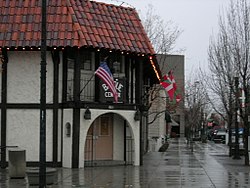South America
Argentina

People of Basque descent make up 10% of Argentina's population, [5] and it was a major destination for Basques emigrating from both Spain and France in the 19th and 20th centuries. Basques have left an indelible imprint on Argentine culture and politics, with many place names and surnames, including those of several Presidents. After several generations, a sense of Basque heritage is still strong, maintained through numerous Basque cultural centres in major cities. Argentine sportspeople with Basque surnames have frequently been nicknamed El Vasco.
Chile
The Basques arrived in Chile in the 18th century from their homeland in the Basque Country, including both the Basque Provinces in northern Spain and the ones in southwestern France, as merchants and due to their hard work and entrepreneurship, rose to the top of the social scale and intermarried into the Chilean elites of Castilian descent. This union is the basis of the Chilean elite of today. The Basque settlers also intermarried into the Mestizo population of central Chile in the middle of the colonial period to form the large Castizo population that exists in Chile today; Castizos makeup modern lower-middle and lower classes. Thousands of Basque refugees fleeing the Spanish Civil War in 1939 also settled and have many descendants in the country and have even intermarried with other Spanish ethnic groups other than Castilians as well as other European ethnic groups. Population estimates of Basque-Chileans range from 30% (5,000,000) to as high as 40% (7, 700,000). [6] [7] [8] [9] [10] [11] [12] [13]
Miguel de Unamuno stated that two things could be clearly attributed to the Basques: The Jesuits and the Republic of Chile. [14]
Colombia
Colombia was one of early focus of Basque immigration; it is estimated that at least 40% of the Coffee Axis and Antioquia's population have Basque origin (2,800,000 people). [15]
Peru
A notable percentage of Peruvian people have at least one Basque surname, with more than 6 million or 18% of the national population. [16] They trace back their presence to colonial times. [17]
Uruguay
It is estimated that up to 10% of Uruguay's population has at least one parent with a Basque surname. [18] The first wave of Basque immigrants to Uruguay came from the French side of the Basque country beginning about 1824.
Venezuela
The first wave of Basque immigration to Venezuela consisted of Conquerors and Missionaries, during the Colonization of Venezuela. [19] The second wave of Basque immigration started in 1939, as a result of the Spanish Civil War. [20]


